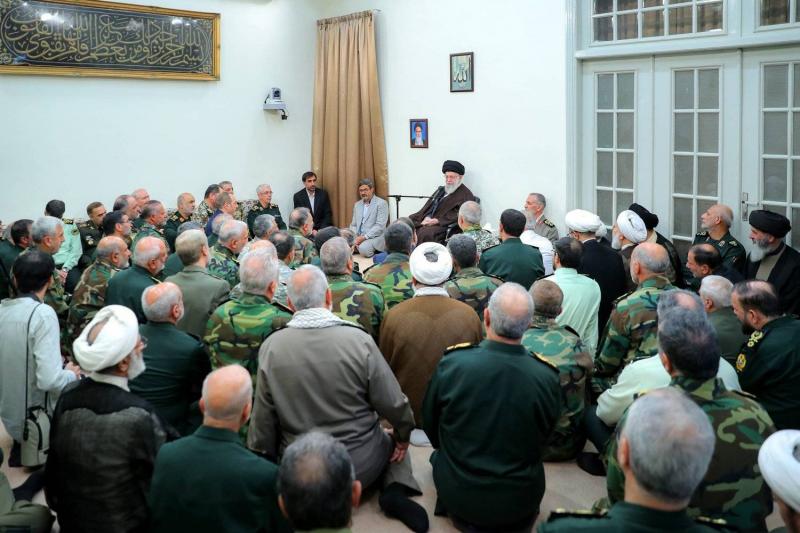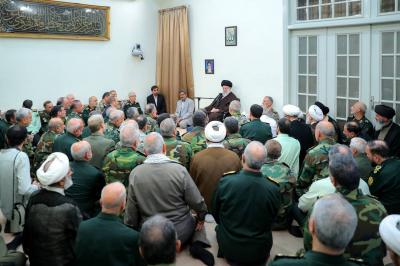The British newspaper "Financial Times" highlights the power structure in the Iranian governance system, which is "controlled by one man," the Supreme Leader Ali Khamenei, noting that he only listens to the advice of the Revolutionary Guard leaders and hardliners. According to the newspaper, the state, with a population nearing 90 million, is "under strict control by a single cleric," and the ruling elite in Tehran is currently undergoing significant changes.
It points out that as the period of struggle for the succession of the Supreme Leader approaches, "the armed forces and hardliners are gaining influence in determining the future of the regime." According to "Financial Times," Khamenei is the highest decision-maker in both major domestic and foreign policy, as the "pragmatic" man heeds the guidance of his predecessor and teacher, Ruhollah Khomeini, stating that "the survival of the regime outweighs even the fundamental Islamic principles."
Regarding Iran's experiences in crises, it states that "Khamenei is accustomed to taking calculated risks when his opponents cross his red lines, such as launching a missile attack on a U.S. base in Iraq following the assassination of Qassem Soleimani in 2020. However, agreeing to the first direct strike on Israel in response to the targeting of the consulate in Damascus constitutes a departure from the usual 'strategic patience' approach."
The Wall Street Journal revealed details about the efforts made by the U.S. national security team to prevent a full-scale war in the Middle East due to escalating tensions between Iran and Israel in recent times. According to the newspaper, "Khamenei retains hardliners in significant state positions and has expressed satisfaction with President Ebrahim Raisi, who was elected in 2021 with a record low turnout that reflected public discontent."
Unlike previous government heads, "Raisi has not challenged Khamenei and has closely followed his directives, possibly to improve his position as a potential successor." The newspaper notes that Khamenei, "who manages the Revolutionary Guard and has contributed to transforming it into the strongest institution in the country, enjoys the loyalty of the Revolutionary Guard leaders to him as the Supreme Commander of the Armed Forces, in addition to their loyalty to his ideology.”
It adds, "Khamenei listens to the advice of the Revolutionary Guard leaders, including in non-military affairs, as the Guard serves as Khamenei's main apparatus for exercising power in Iran and the Middle East."
According to "Financial Times," "other Iranian clerics play no role in decision-making, as they provide the religious legitimacy for the country's rulers, including the Supreme Leader who must be a Shiite cleric." The "Assembly of Experts," which includes 88 clerics, is responsible for appointing the next leader after Khamenei's death and is supposed to oversee his actions, "even though it has never exercised any oversight at all," the newspaper says.
It notes that the popularity of clerics, whose numbers have risen to hundreds of thousands studying and working in state-funded institutions, has "declined recently," according to "Financial Times."




